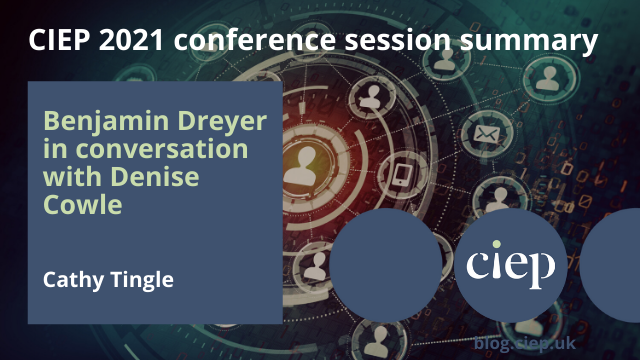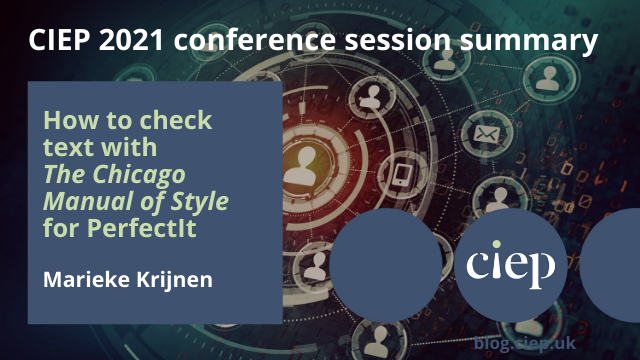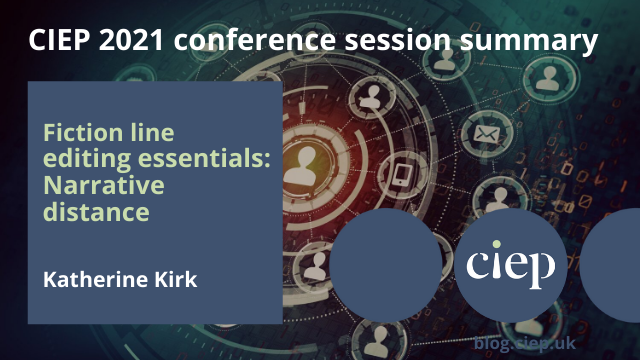How do accessibility and good communications work in our members’ forums? Community director John Ingamells, also a forum moderator, gives us some ideas.
 The CIEP’s online forums are probably one of the main ways in which members communicate with each other. From seeking advice on a tricky editing problem or offering work to colleagues, to sharing amusing anecdotes about infelicitous typos, we like to think that the forums are a valuable professional resource for members as well as our very own ‘water cooler’ where, despite us all being cooped up in our own homes or offices, we can meet and interact with each other.
The CIEP’s online forums are probably one of the main ways in which members communicate with each other. From seeking advice on a tricky editing problem or offering work to colleagues, to sharing amusing anecdotes about infelicitous typos, we like to think that the forums are a valuable professional resource for members as well as our very own ‘water cooler’ where, despite us all being cooped up in our own homes or offices, we can meet and interact with each other.
A small team of moderators keep an eye on the forums to ensure good order, iron out any difficulties and answer questions members may have. Like any CIEP space, the forums are covered by the CIEP Dignity Policy, and members should be familiar with that. Here are a few simple do’s and don’ts for using the forums, based on the collective experience of the moderators.
Keep it professional
The first and most important rule – which should perhaps go without saying – is to remember that our forums are not the unregulated Wild West of Facebook or Twitter, but a professional forum populated entirely by your colleagues and fellow professionals. So, be courteous, be polite. Opinions often differ and that’s only to be expected. But we should all maintain a professional attitude when taking part in discussions, avoiding personal remarks or criticisms. The CIEP takes seriously its obligation to ensure that all members can take part in its activities free from bullying or harassment and we expect members to play their part.
Enjoy the chat
But that doesn’t mean it all has to be dour and po-faced. There’s nothing wrong with going off-piste occasionally. Many a thread has started with a question on a strictly editing-related problem but has given rise to a conversation that goes off on all sorts of interesting and informative tangents. And where would we be without our regular laugh from the ‘Typo of the Day’ thread? Another thing to bear in mind is that, although we are a fairly specialist crowd, we can still boast a healthy measure of diversity. We have newcomers and others with years of experience. Some have been in and around publishing all their working lives, others have taken up the red pen after careers in very different fields. We have freelancers and others working in-house who will bring a different perspective to discussions. Most exciting of all is that our global reach has grown and around 20 per cent of our membership is now based outside the UK.
Opportunities in the Marketplace
The Marketplace gives you the opportunity to find someone to do a job that you have been offered but are unable to take on. This can be a great way to maintain a relationship with a good client, even if you can’t fit a particular job in. It should only be used for individual, one-off jobs. So, please don’t use it to advertise, for example, permanent positions with a publisher or the chance to get on a publisher’s freelance list. What we really want to avoid is companies getting free advertising on the Marketplace when they really should be paying for it or doing their own legwork in our Directory!
Our code of conduct for courses
Courses often come up as a topic for discussion on the forums. Many new members have found a wealth of advice about which courses to take and how to go about developing their skills. But, for reasons that I am sure will be obvious, we do not permit detailed discussion about the content of individual courses. Course exercises should be all your own work. So, if you’re stuck on a seemingly intractable point of grammar or formatting in a CIEP course, please try to figure that out for yourself – or ask your tutor!
Some of our members devise and offer their own training courses or materials. You may see references to these resources in members’ signature blocks on the forums, along with links to their websites. This sort of passive promotion is fine. But members should not use the forums for any active promotion of their courses or other paid services.
Screens and spaces
The age of Zoom has thrown up a few additional considerations for the CIEP. The Institute takes seriously its obligation to ensure that all its events are inclusive and offer as many members as possible the chance to participate. At the same time, we have to protect our brand and products.
So, a member might come to a forum with a question about how to do something with, say, PDF markup. Another member might be something of a PDF expert and offer to go on Zoom and demonstrate things by sharing screens. This type of informal cooperation is a hallmark of the CIEP but, while a quick screen-share during a local group meeting to illustrate something is fine, if you are organising discrete meetings for more structured help or informal training, you should use your own Zoom resource for that, rather than the CIEP’s, and make sure that participants are aware that the space is a personal one.
Be discreet
Finally, please be careful about identifying outside individuals or organisations and don’t quote external sources or private emails or messages without permission. In particular, please avoid anything that could cause harm to the reputation of an individual or organisation.
If you’re a CIEP member, have you discovered the forums yet? Find out how to register.
 About the CIEP
About the CIEP
The Chartered Institute of Editing and Proofreading (CIEP) is a non-profit body promoting excellence in English language editing. We set and demonstrate editorial standards, and we are a community, training hub and support network for editorial professionals – the people who work to make text accurate, clear and fit for purpose.
Find out more about:
Photo credit: connections by Nastya Dulhiier on Unsplash.
Posted by Abi Saffrey, CIEP blog coordinator.
The views expressed here do not necessarily reflect those of the CIEP.



















